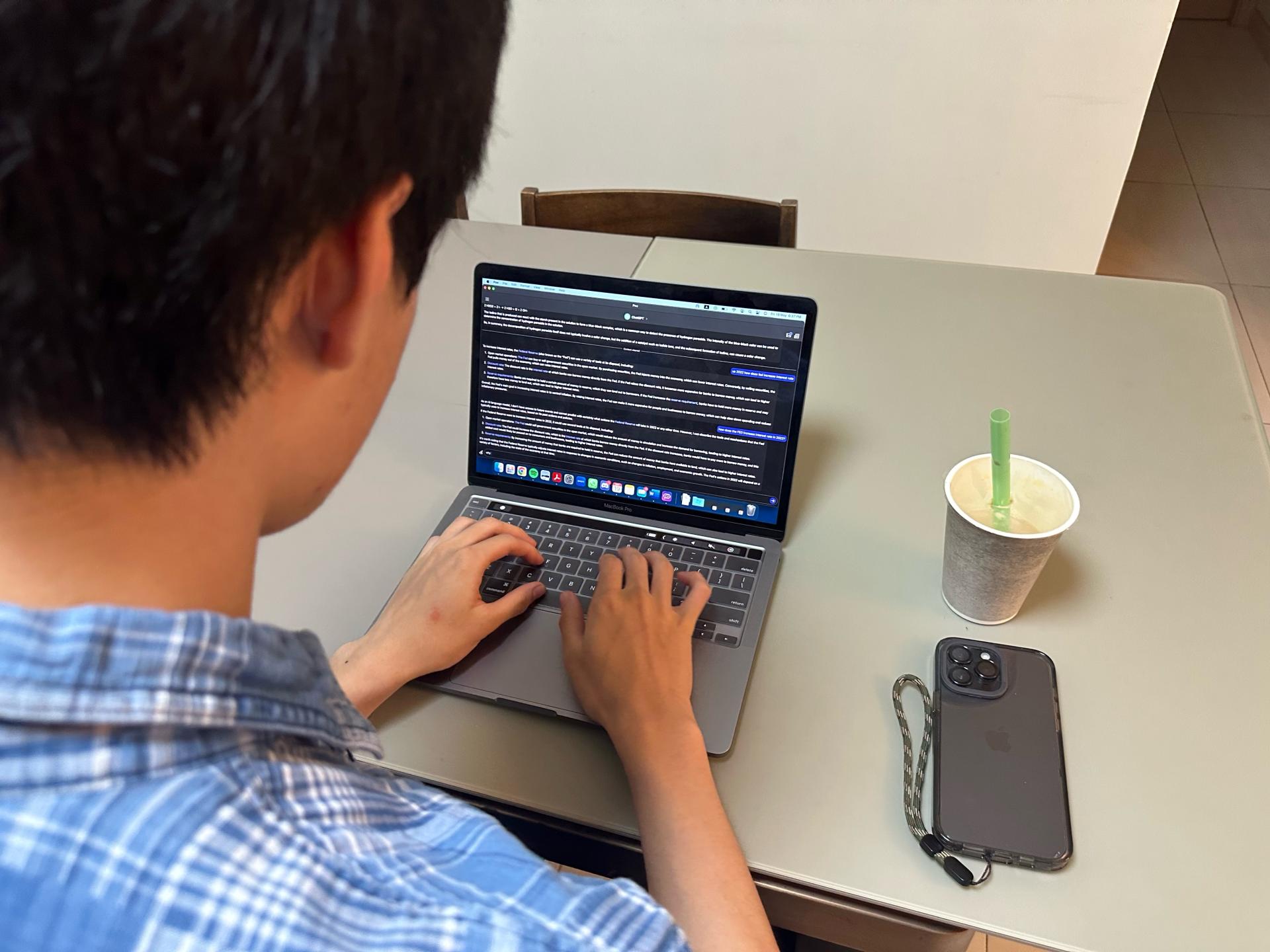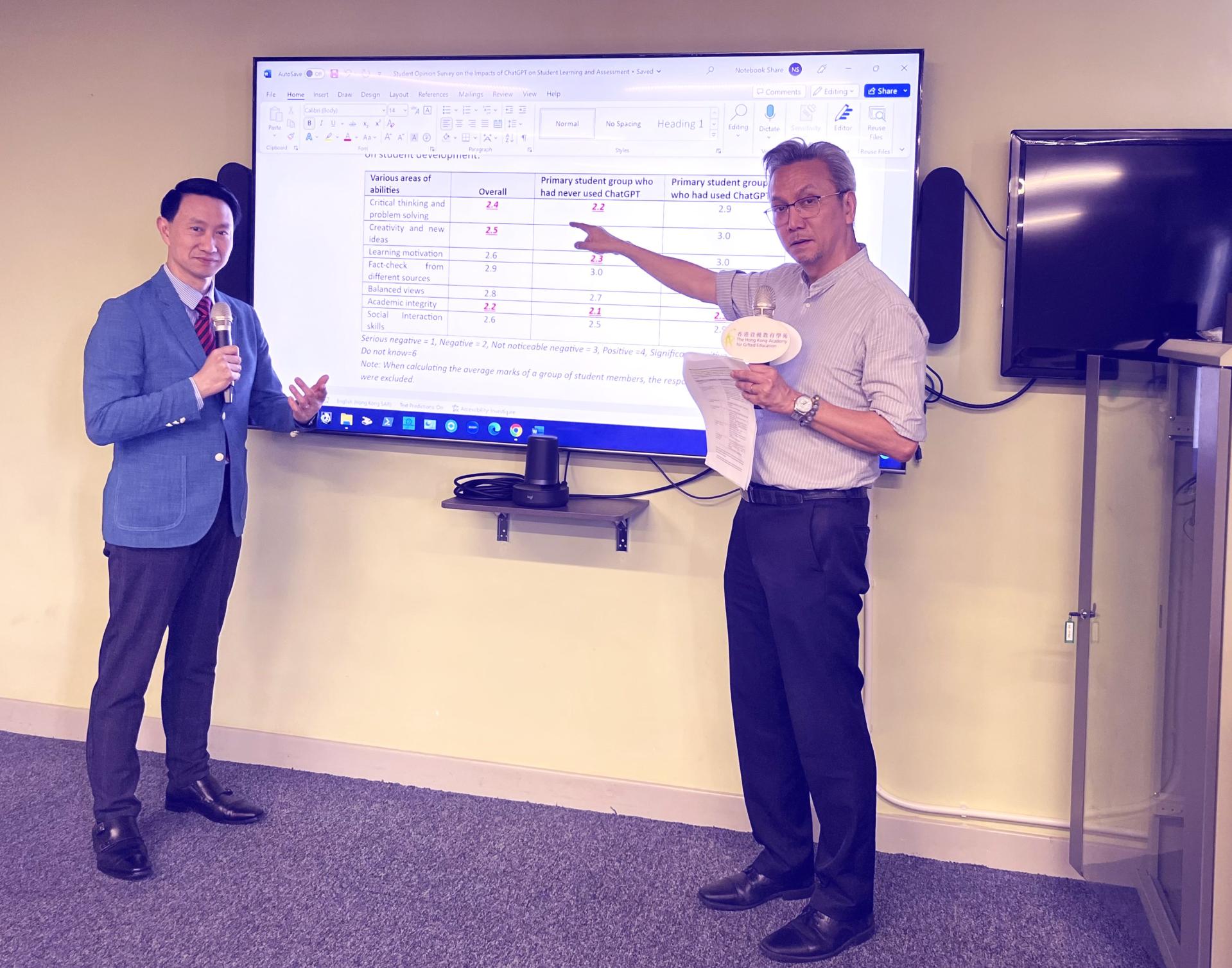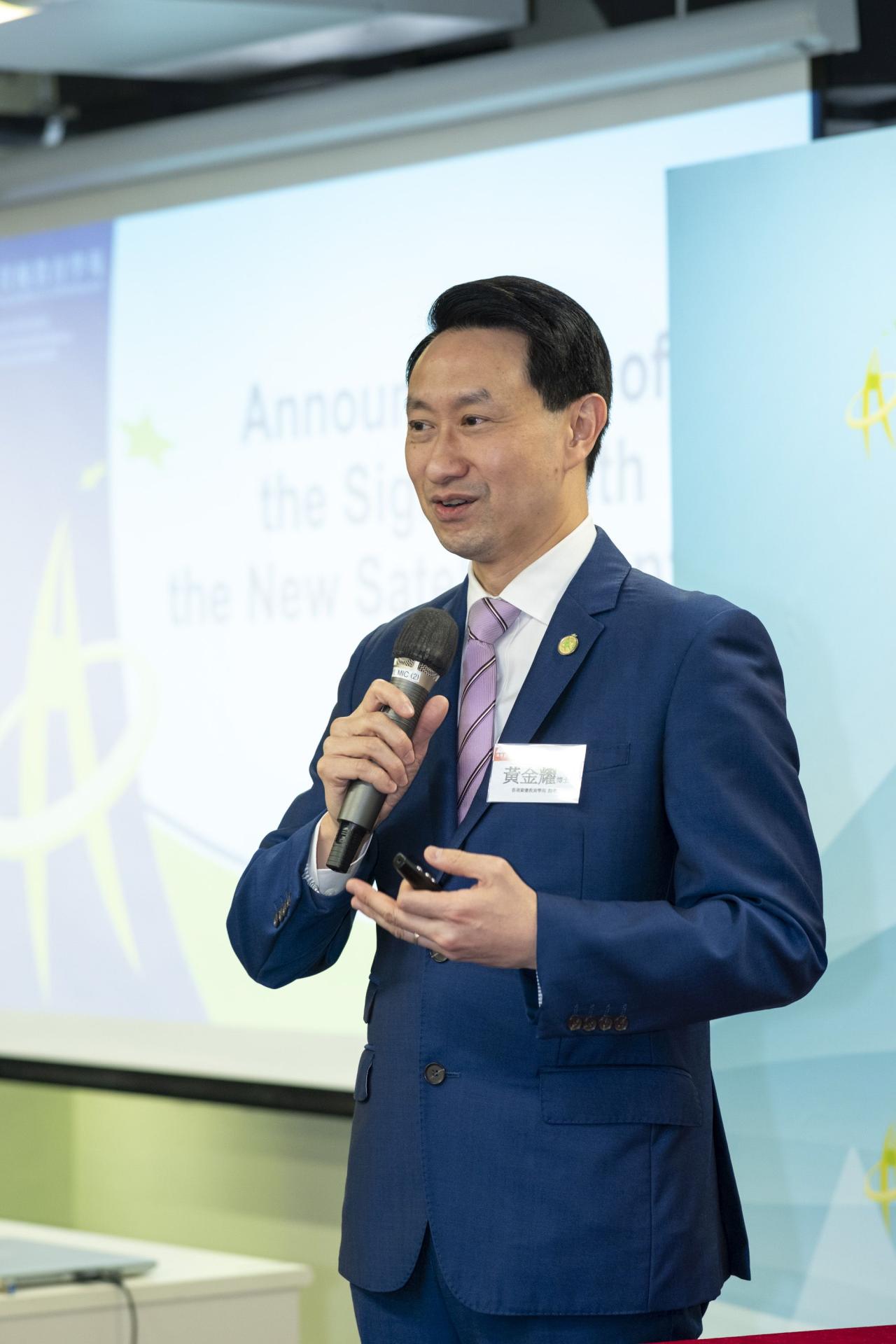ChatGPT: Inevitable Trend Raises Gifted Students' Concern about Academic Integrity
(Hong Kong - 22 May, 2023) Generative Artificial intelligence chatbot ChatGPT has been a hot topic in the city lately, as its application not only blows students' minds but also challenges traditional teaching methods.
The Hong Kong Academy for Gifted Education (HKAGE) conducted a survey of its students at the end of March. Project leader of the survey, Dr Eric Fung, Head of the Research Division, said, “the purpose of the survey was to understand the positive and negative impacts of the new technology ChatGPT on our gifted students, as well as their user experience and opinions. This is to ensure that we use the technology in the best possible way to support HKAGE's educational goals and values.”
“According to the survey, both primary and secondary students believed that ChatGPT could assist them in finding reference materials and exploring new ideas, and understanding complex theories, thereby enhancing their learning attitude and ability to a certain extent. Students also believed that ChatGPT would become popular among student groups, and they would generally use the tool to complete their coursework. At the same time, students also believed that ChatGPT would have a negative impact on the student’s learning development in the future, including academic integrity, critical thinking, and problem-solving skills.” Details of the survey results are discussed below.
The study was conducted in the form of questionnaires and successfully surveyed 502 students, i.e. 143 primary school students and 359 secondary school students. About 83.2% of the primary school students and 92.2% of the secondary school students had heard of ChatGPT, but only about 12.6% of the primary school students and 25.1% of the secondary school students responded that their schools allowed the use of the application under guidance. (Table 1) The main purpose was to collect and integrate information while studying at home (88.9% for primary school students and 90.0% for secondary school students).
Based on their user experience in the past three months, students had a good impression of ChatGPT. They found the application easy to use and helpful in finding information, exploring new ideas, and understanding complex theories, which improved their ability to learn in a self-directed manner. (Table 2)
Academic Integrity Being Questioned
Regarding the impact of ChatGPT on students’ future learning development, the respondents generally held a negative view, with the most obvious being the academic integrity issues arising from the use of ChatGPT. The average scores of primary and secondary school students were 2.2 and 2.0, respectively (1= most negative; 5= most positive), reflecting that compared to their primary school counterparts, secondary school students held a more negative view about integrity issues. Students also believed that ChatGPT would weaken students critical thinking and problem-solving ability, with an average score of 2.4, second only to academic integrity. However, interestingly, students who had previously used ChatGPT held a more neutral view. Regarding academic integrity, students generally believed that using ChatGPT to check answers was acceptable, while other uses of ChatGPT, such as rewriting essay using “perfect” academic language generated from ChatGPT, borrowing arguments, views, and analyses from ChatGPT and directly adopting answers/outputs from ChatGPT should be regarded as cheating.
Balancing Various Concerns While Embracing New Technology
Although the overall surveyed students had a negative view of ChatGPT's impact on students’ future learning development, they also recognised that ChatGPT would inevitably be applied in teaching and learning modes in the future. Therefore, they also made many suggestions in the questionnaire, and the following are the more frequently mentioned suggestions:
- I think teachers in schools can teach students to use ChatGPT correctly, such as teaching them what prompt words to use to find the answer.
- Schools need to issue clear guidelines on where ChatGPT can and cannot be used.
- I think a programme/application to prevent the misuse of ChatGPT can be developed and installed on students' electronic devices.
- Only certain functions are open, or there is a teenage mode.
- I think all assessments should be conducted in schools.
- Require students to make oral presentations to ensure their understanding of the subjects.
Responding to the trend of ChatGPT, Dr Jimmy WONG, Executive Director of HKAGE, encourages the education sector and students to embrace new technology. "As the survey results show, most students interviewed believe that ChatGPT will become a trend in future teaching and learning. Therefore, as a member of the education sector, we need to proactively take on this trend and establish guidelines for students to ensure academic integrity when using ChatGPT. We also need to instruct students to verify the accuracy of the information provided by ChatGPT.
"From a macro perspective, the education sector shall address the potential digital divide which might ultimately create unfair competition if only some students are allowed to use ChatGPT,” he added.
{***the above text was translated by ChatGPT based on the Chinese version. Only about 15% of the text was amended.}
Photos:

ChatGPT has become popular among student communities.

Dr Eric FUNG, Head of the Research Division of the Academy (right), and Dr Jimmy WONG, Executive Director of the Academy (left), shared the outcomes of the survey on positive and negative impacts of ChatGPT on gifted students.

Responding to the unstoppable trend of ChatGPT, Dr Jimmy WONG, Executive Director of HKAGE, encourages the education sector and students to embrace new technology.
Table 1: Stances of Schools
Stances of Schools | Primary Student Members (Total: 143) | Secondary Student Members (Total: 359) |
Forbidden by school | 68.5% | 45.4% |
No explicit guidelines/rules implemented by school | 18.9% | 29.5% |
Permission to use under instructions by school | 12.6% | 25.1% |
Table 2: Partial Survey Results from the Questionnaire
User Experience and Views About ChatGPT | Primary Student Members (Total: 143) | Secondary Student Members (Total: 359) |
Have heard of (Percentage) | 83.2% | 92.2% |
Used in the last 3 months (Percentage) | 35.7% | 47.6% |
User experience during the past three months | Average Score | |
User friendliness (1 very not user friendly - 3 so so - 5 very user friendly) | 3.7 | 3.7 |
Frequency of Usage |
|
|
Information searching, fact-check, knowledge exploration | 2.7 | 3.3 |
Brainstorming and exploring new ideas | 2.2 | 2.7 |
Writing essays and language translation | 2.1 | 2.6 |
Relevant subject areas |
|
|
Sciences | 2.2 | 2.5 |
Languages | 2.1 | 2.6 |
Helpful in learning |
|
|
Understanding complex concepts | 3.1 | 3.1 |
Finding references and exploring ideas | 3.1 | 3.5 |
Writing programming snippets and short essays | 2.7 | 3.3 |
Impacts on learning attitude |
|
|
More eager to learn new things | 2.5 | 2.7 |
More confident to accomplish challenging assignments | 2.2 | 2.7 |
More capable to learn in a self-directed manner | 2.3 | 2.7 |
Complete assignments without really understanding the course materials | 1.2 | 1.7 |
Impacts on learning ability |
|
|
Understanding theories and concepts in STEM | 3.6 | 3.5 |
Programming and mathematical skills | 3.6 | 3.4 |
- End -






